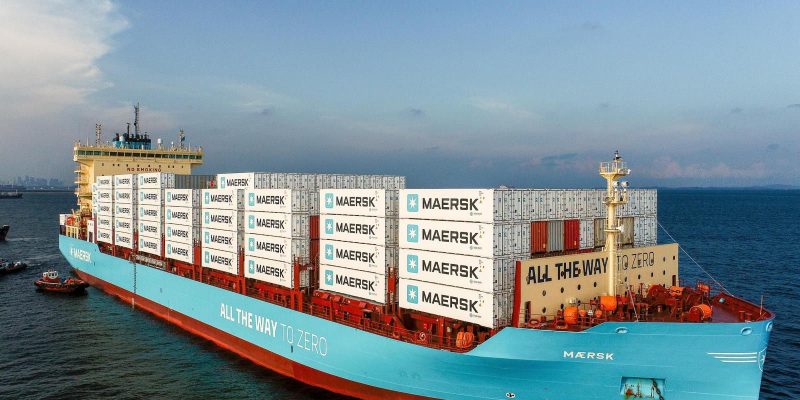In Egypt, the port city of Port Said has just welcomed the first container ship powered by green methanol. This fuel is a product derived from green hydrogen, of which Egypt is aiming to become the largest producer on the African continent.
This is a first for Port Said, on Egypt’s Mediterranean coast. A ship running on green methanol has just docked in this port city at the mouth of the Suez Canal. The container ship, owned by Danish shipowner A.P. Møller-Mærsk, left Asia for Europe. Before continuing its journey, the ship stopped off in Egypt for the first green bunkering in the land of the Pharaohs.
https://twitter.com/Maersk/status/1692443404003574134
The six-hour operation was carried out by OCI Global, one of the world’s largest producers of nitrogen fertilisers, which is now exploring the use of green hydrogen and its derivatives to decarbonise several sectors of the global economy. As part of the Fertiglobe joint venture with Abu Dhabi National Oil Company (ADNOC), the Danish group has joined forces with Norwegian energy company Scatec and Egyptian flagship Orascom Construction to inaugurate the first green hydrogen production unit in the Suez Canal economic zone.
Hope for the decarbonisation of maritime freight
The event was held in conjunction with the 27th United Nations Climate Change Conference (COP27) in Sharm El-Sheikh in November 2022. The consortium is aiming to produce 90,000 tonnes of green ammonia a year over the next few years. In addition to the decarbonisation of nitrogen fertilisers, the project launched in 2021 will enable the development of other products derived from hydrogen, in particular methanol for the decarbonisation of maritime freight.
Read also- EGYPT: Africa’s first green hydrogen plant comes on stream at Ain Sokhna
The Mærsk container ship left Port-Saïd a few days ago with 500 tonnes of methanol in its hold. “Methanol is an ideal hydrogen carrier for maritime transport. Its energy density is twice that of liquid hydrogen, so on-board methanol tanks only need to be half the size. It can also be transported safely: even if a tank leaks, there is no significant environmental risk,” explains researcher Benjamin Jäger from the Fraunhofer Institute in Munich, Germany.
According to the International Maritime Organisation (IMO), maritime freight contributes to 3% of greenhouse gas emissions worldwide. And if decarbonisation solutions are not implemented, pollution from maritime transport will account for 17% of emissions by 2050. Green hydrogen and its by-products are being seriously explored…
Jean Marie Takouleu







